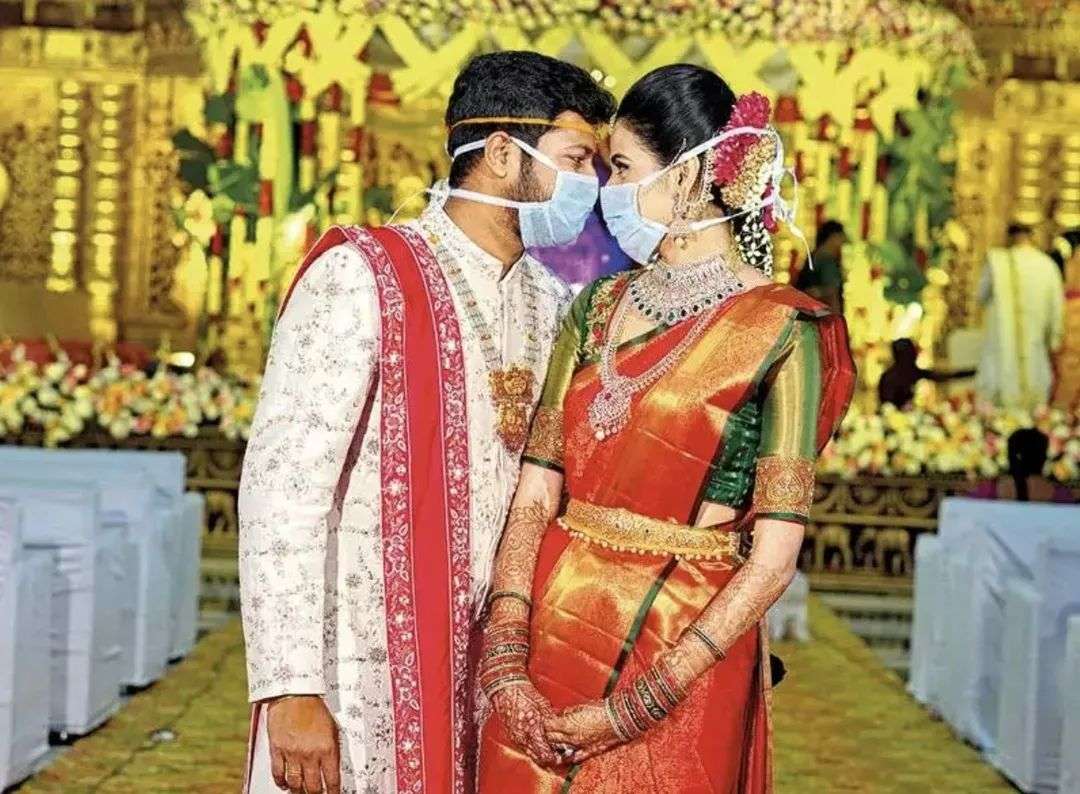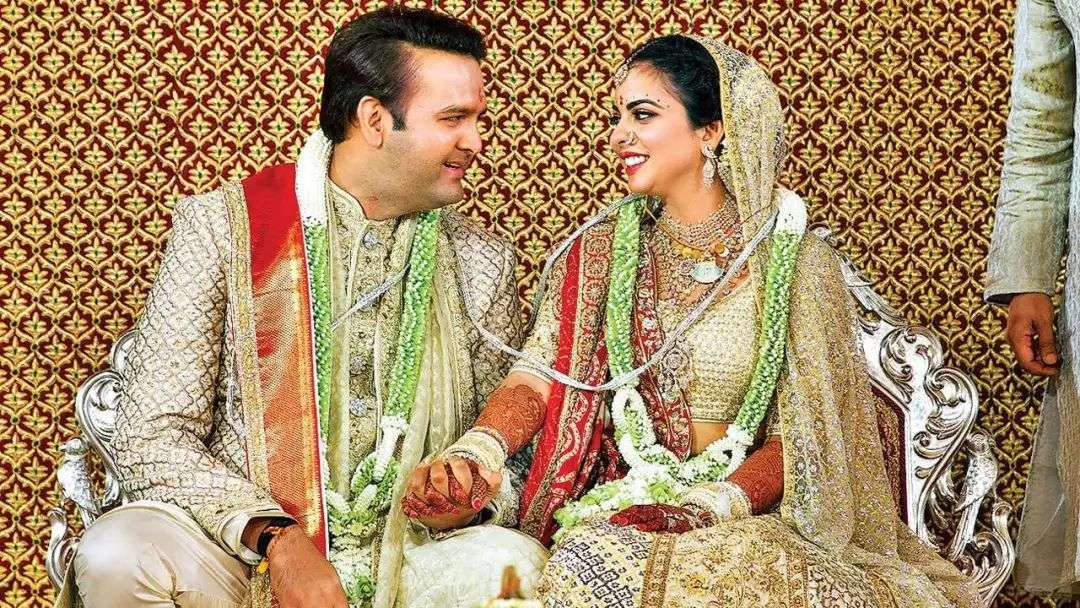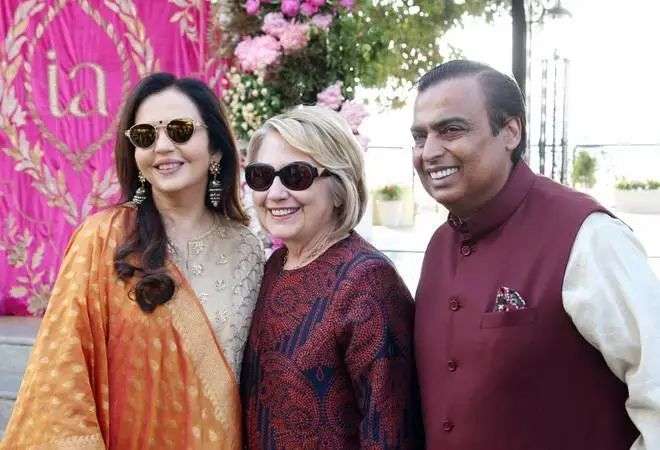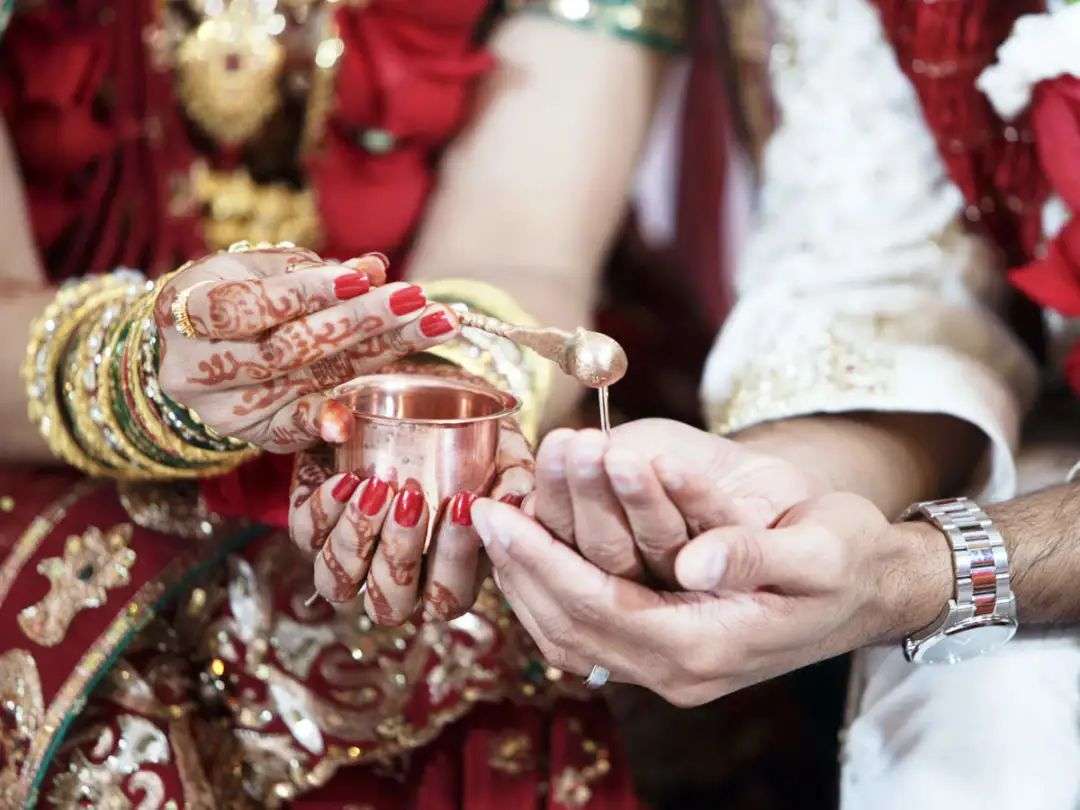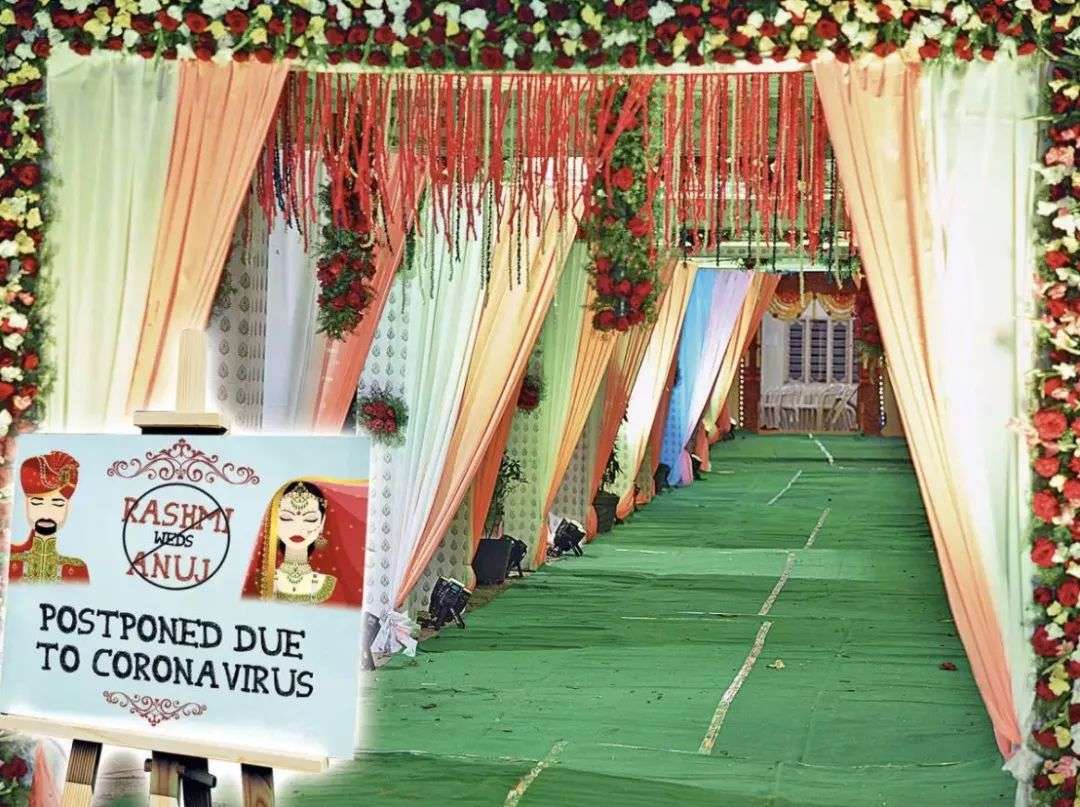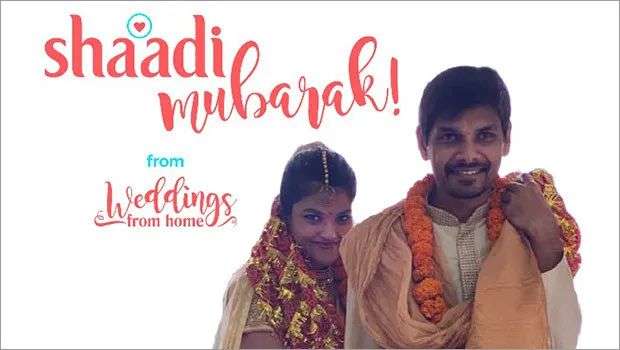There were no cocktail parties, gourmet feasts, or carnival parties. Groom Sushen Dang from Mumbai, and Keerti Narang, a bride from Bareilly, witnessed the pastor of Raipur and completed a wedding with video conferencing software.
Groom Dang appeared in front of the camera at the parents’ home in Mumbai, wearing a turban made of her mother’s red scarf. Bride Narang is far away from Barreli, hundreds of miles away, wearing her mother’s traditional Indian wedding dress. The priest who presided over the wedding sang hymns in front of the screen in another city of Raipur, leading the bride’s father to hand over his daughter to the groom. Hundreds of guests logged into Zoom in their homes, witnessed a video wedding, blessed the couple, and danced with the latest Bollywood hot music.
The family of Dang and Narang has been carefully planning for the wedding of the two for months, from matching desserts to a luxurious menu to buying luxury gifts for guests attending the wedding. Dang had already imagined his way of playing. Instead of riding a horse, he made his debut on a quad bike.
But in this digital wedding, the wedding celebration is full of chaotic elements. There is no silent microphone to capture the private conversations of the guests. When people dance to the music, the pets also enter the screen.
“This is a wedding held under the Indian epidemic blockade,” said Anupam Mittal, founder and CEO of online matchmaking company Shaadi.com. “We want to help these newcomers so that they can get married as originally planned even when they are socially isolated.”
According to a report by KPMG, the current value of the Indian wedding industry is about US$50 billion. India’s wedding industry is like an engine, driving the development of various industries such as clothing, jewelry, hotels, flowers, transportation, and catering. In India, there are more than 10 million weddings each year, with budgets ranging from 500,000 to tens of thousands of rupees. The cost of a digital wedding only ranges from 50,000 to 100,000 rupees.
The new crown epidemic has also impacted the wedding industry, but soon start-ups discovered new business opportunities and started a digital wedding business.
Luxurious Indian wedding
Indian weddings are extremely luxurious, and the families of both parties do not hesitate to spend on weddings, because this is a symbol of family status to a certain extent.
The most eye-popping Indian weddingIt should be the wedding of Issa Ambani, the daughter of Mukesh Ambani, the richest man in India and chairman of Reliance Industries. At the end of 2018, Issa Ambani was married, and the groom was a billion-dollar entrepreneur Anand Piramal. The families of both parties poured a lot of money and invited 5,000 Indian citizens to eat the “flowing mat”.
Issa Ambani and Anand Piramal Photo credit: India Today
Singers for the wedding include Beyoncé, John Legend; political celebrities include former US Secretary of State Hillary Clinton, John Kerry, and Saudi Arabia’s Energy Minister Khalid A. Al -Falih, India’s Minister of Coal and Railways, and the Minister of Textiles; and Lakshmi Mittal, India’s No. 1 steel tycoon, Martin Sorrell, founder of the world’s advertising giant WPP, and 21st Century Fox CEO James Murdoch (James Murdoch) and other business leaders are invited to participate in this century wedding. The celebrity guests were also picked up by Ambani home plane.
Mukesh Ambani couple and Hillary Clinton Image source: Bussiness Today
This wedding has refreshed people’s awareness of the luxury of Indian weddings, but even poorer rural Indian families will spend a lot of money and even carry debts for a grand wedding. Indian wedding is not just a grand ceremony and performance, the whole family’s emotions are pinned on the wedding.
A KPMG report shows that the current value of the Indian wedding industry is about $50 billion.
The booming wedding industry can evenAffect Indian gold prices. At the wedding, the bride was dressed in a saree covered with embroidery, gold ornaments and jewelry, and giving away gold was an entrenched part of Indian marriage ceremonies. According to World Gold Council data, in India, the gold produced by the wedding every year Demand accounts for about 50%.
Even if the global financial crisis broke out in 2008, it did not seem to affect the prosperous wedding industry in India. At that time, the New Delhi government introduced new taxation measures on goods and services, etc., which also failed to affect the wedding industry. The social structure of India, coupled with the predominance of the young population in the national population, has protected the wedding market from economic turmoil.
However, the new crown virus and India’s lock-in policy have stalled the wedding industry. Thousands of weddings across the country were forced to be cancelled. In India, the wedding industry is considered an informal industry, and many wedding service providers, including scenery, catering, makeup artists, technicians, and photographers, do these businesses part-time.
Indian wedding Picture source: The Economic Times
But for wedding companies, the epidemic has brought innovation to the industry. For example, marriage portal Shaadi.com coordinated several online weddings during the outbreak, including online wedding invitations and the delivery of wedding banquet food to guests’ homes. About 2.5 million users submitted information on the Shaadi.com platform, and the company is also planning to establish an independent database for online weddings.
“During the blockade period, the company’s new user registration and platform participation have increased.” A spokesperson for Shaadi.com said.
An online wedding service is no different from the traditional wedding process. Send an electronic invitation, guest management, please host the wedding ceremonies and DJs, and prepare a gift basket for guests, so that people can hold their own at home Cup celebration.
The biggest benefit of digital wedding is the reduction of extravagance and waste in the past. The former Indian ambassador to Iran, K.C. Singh, once commented on Ambani’s wedding on Twitter. In his view, the Ambani family should invest the money spent on luxury weddings in public welfare.
The lack of expensive hotel bookings and catering services, and the wedding industry that pressed the pause button because of the new crown epidemic, also helped the government achieve its goal for many years: limit the wedding periodIndiscriminate squandering.
Startups aim at digital weddings
The new crown epidemic has reshuffled all walks of life in the world, and the Indian wedding industry has to stop temporarily during the wedding season. Most of the wedding dates determined by Xingyun will be set a few months in advance. Today, with the help of video sites such as Zoom, YouTube and Google Hangouts, these weddings are all held online.
Nilu and Animesh held the wedding on May 8th. The two newcomers said, “We have a wedding dress at home. Online wedding is a good concept, which means we don’t have to postpone The date of the wedding. After everything is back to normal, we are not going to make up for the ceremony, but will hold a small post-wedding ceremony at home.”
Under the epidemic, many startups are also looking for opportunities in the online wedding industry.
Wedding suspended due to epidemic picture Source: Times of India
“Everything that can be done in a traditional wedding, we can also do it in an online wedding,” said Geeta Raj Rawtani, founder of My Eventz, a startup that organizes online events, “We provide complete bride and groom Activity flow support.”
My Eventz, headquartered in Mumbai, started operations in May this year, and has received reservations for weddings, wedding anniversaries and birthday parties from various cities.
PartyStarters have been hosting digital parties since April of this year and provide wedding services. The Mumbai-based private party and wedding contractor has already undertaken two digital weddings. Company founder Niyomi Zatakia said that once the wedding invitation is sent to guests, it is considered unlucky to postpone the wedding, so PartyStarters must ensure that the wedding can be held as agreed in the outbreak.
“The next peak wedding season will come from December this year to January next year, and people are still on the sidelines. Even if it is not the entire wedding, online wedding services will still play a certain role,” Zatakia said: “According to Judging from the current situation, weddings attended by more than 1,000 guests are unlikely to be held.”
In addition to startups, large companies have also joined the digital wedding competition.
People Interactive, which owns Shaadi.com, the world’s largest marriage portal, launched a “Wedding at Home” event to help newcomers from different communities, cultures, and religions get married during the outbreak.
Shaadi.com’s “Wedding at Home” Image Source: Best Media Info
Generally speaking, wedding venues, food and decorations account for most of the wedding budget. In a digital wedding, these costs are removed. The cost of a wedding ranges from 50,000 to 100,000 rupees. If you choose a big-name host or DJ, the cost will be higher.
Investors are also paying close attention to this area.
Digvijay Singh, chief operating officer of Indian Angel Network, which focuses on early stage venture capital, said: “As investors, we are concerned about startups that can innovate and flourish under the epidemic. Biotechnology, robotics, medical technology, educational technology, etc. Is our focus area. However, it will be interesting to observe how wedding startups innovate at this stage and introduce a viable business model.”
Priyanka Sinha, a partner at A&P Partners, said that as many activities are gradually becoming online, privacy issues are also urgently needed to be resolved.
“Like online weddings involve guests providing personal information to service providers, which raises concerns about data.” Sinha said that the biggest challenge facing the platform will be data security.
But there are also many traditional wedding companies that are not optimistic about the digital wedding model. Gunjan Bansal, CEO of L’amore Weddings, said, “Once the epidemic has passed, people will choose the traditional wedding model. The number of guests may decrease and the wedding may temporarily become a small family matter. But once the blockade ends, the wedding industry It will be the first to regain its strength, which is why the hotel industry is also focusing on the wedding industry. Digital weddings are not suitable for Indian customers, because people are more focused on gathering together to celebrate. Once the government relaxes restrictions, the wedding industry will rebound.”
Cheta, CEO of Weddinglinen Vohra also holds the same view on this. He said: “It is a trend to hold a wedding that does not violate social distance. It is cool. But as the epidemic ends, this trend will disappear.”
